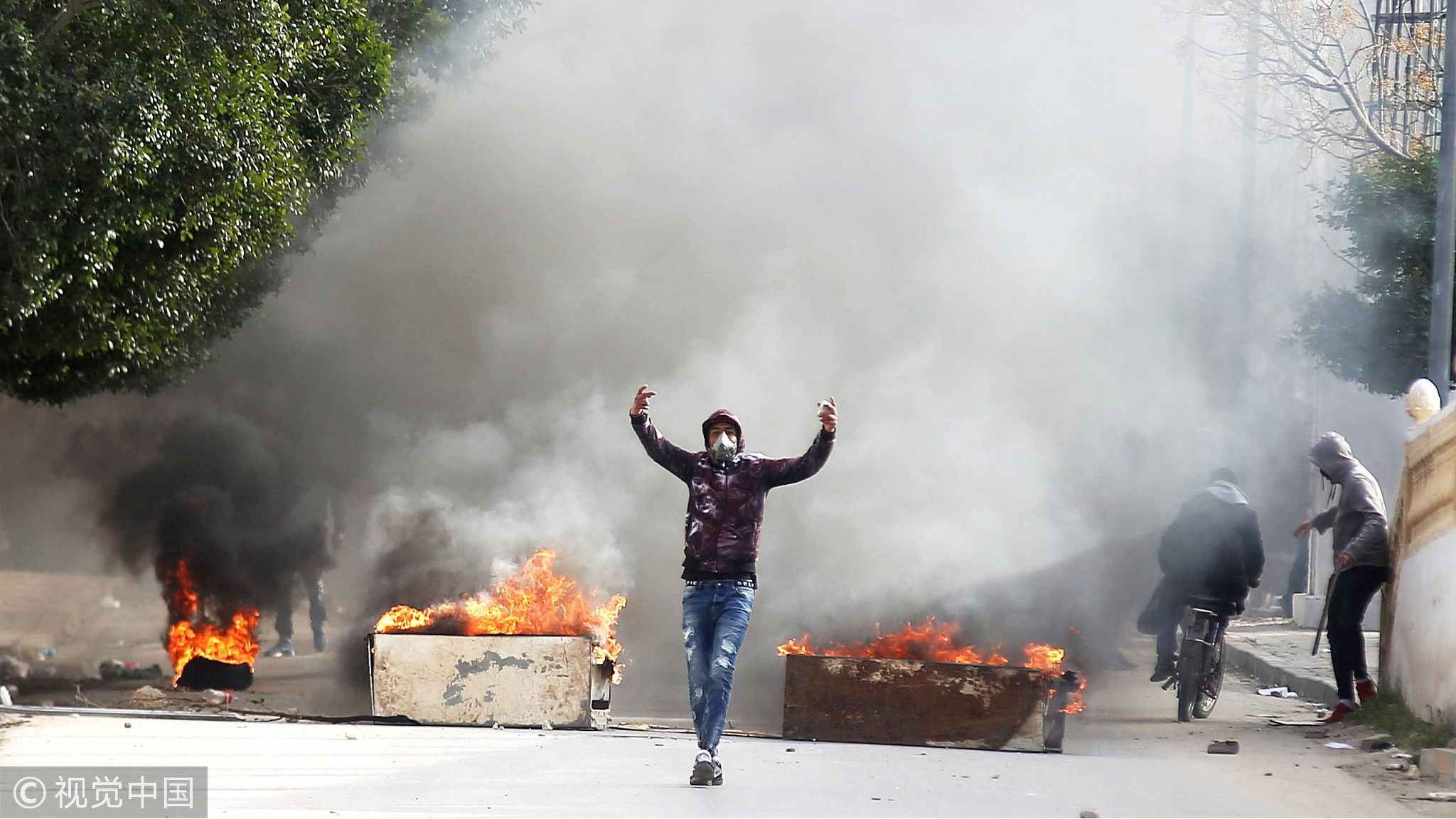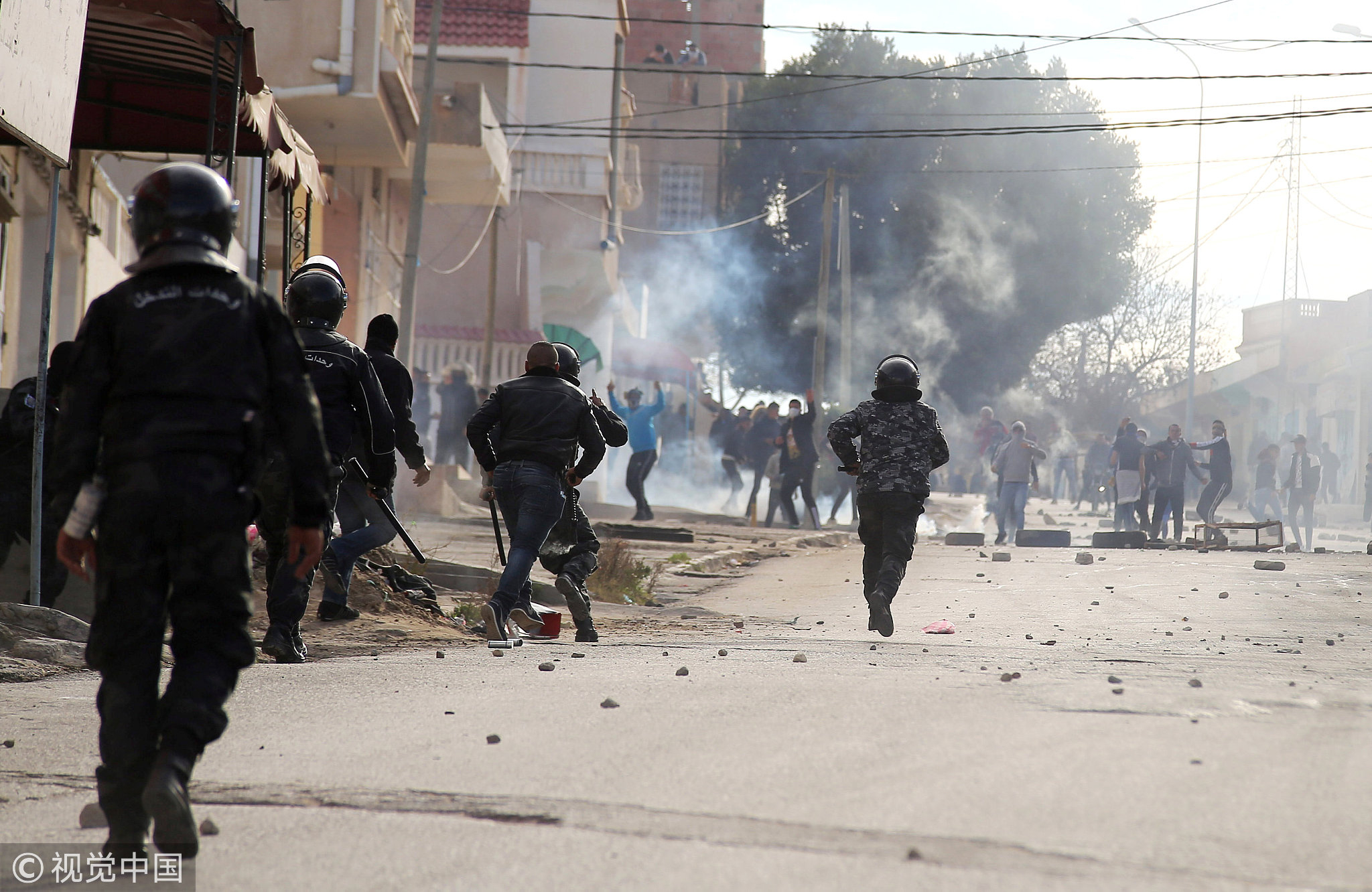
World
15:28, 26-Dec-2018
Tunisian protesters clash with police after journalist self-immolation
Updated
14:42, 29-Dec-2018
CGTN

Protesters clashed with security forces on Tuesday in western Tunisia after a journalist set himself on fire to protest social conditions, in an act recalling the start of Arab Spring protests in 2010.
Six members of the security forces were injured and nine protesters were detained following the protests in the city of Kasserine, interior ministry spokesperson Sofiane al-Zaq said.
Police also fired tear gas at the demonstrators after clashes outside the governor's office, according to an AFP correspondent.
The protests first erupted on Monday after Abdel Razaq Zorgi, a 32-year-old journalist, set himself on fire to denounce economic problems.
"For the sons of Kasserine who have no means of subsistence, today I start a revolution. I am going to set myself on fire," Zorgi said in a video published before his death.
The reporter died of his injuries on Monday soon after being taken to the hospital, authorities said.

Riot police clash with protesters during demonstrations, in Kasserine, Tunisia, December 25, 2018. /VCG Photo
Riot police clash with protesters during demonstrations, in Kasserine, Tunisia, December 25, 2018. /VCG Photo
His death sparked protests in the city after dark and clashes overnight with police who fired tear gas at dozens of people who had set tires ablaze and blocked the main street.
After a brief morning of calm, protesters were back on the streets of Kasserine on Tuesday afternoon after Zorgi's funeral.
The National Union of Tunisian Journalists said he died protesting "difficult social conditions... and a lack of hope," and that it was considering organizing a general strike in the media sector.
In late 2010, the self-immolation of a Tunisian street vendor in protest at police harassment set in motion a series of uprisings across the region, which became known as the Arab Spring.
Kasserine was one of the first cities to rise up after the vendor's death, in protests that saw police kill demonstrators.
The unrest quickly spread across the country and led to the overthrow of former president Zine al-Abidine Ben Ali.
Despite the country's democratic transition after Ben Ali's ouster and a recent return to economic growth, authorities are still struggling to improve poor living conditions.
Inflation fueled by the devaluation of the Tunisian dinar and persistent unemployment sparked protests across the country last January.
8863km
Source(s): AP
,AFP
,Reuters

SITEMAP
Copyright © 2018 CGTN. Beijing ICP prepared NO.16065310-3
Copyright © 2018 CGTN. Beijing ICP prepared NO.16065310-3